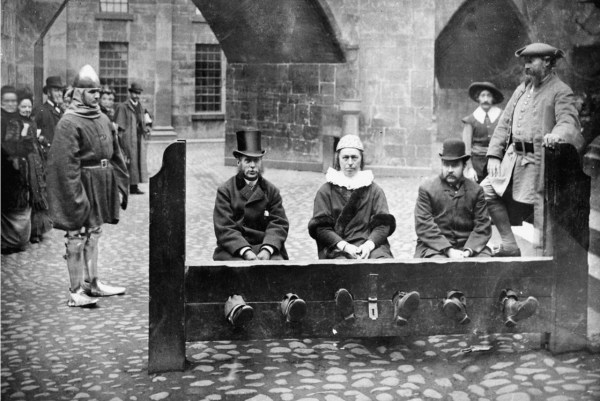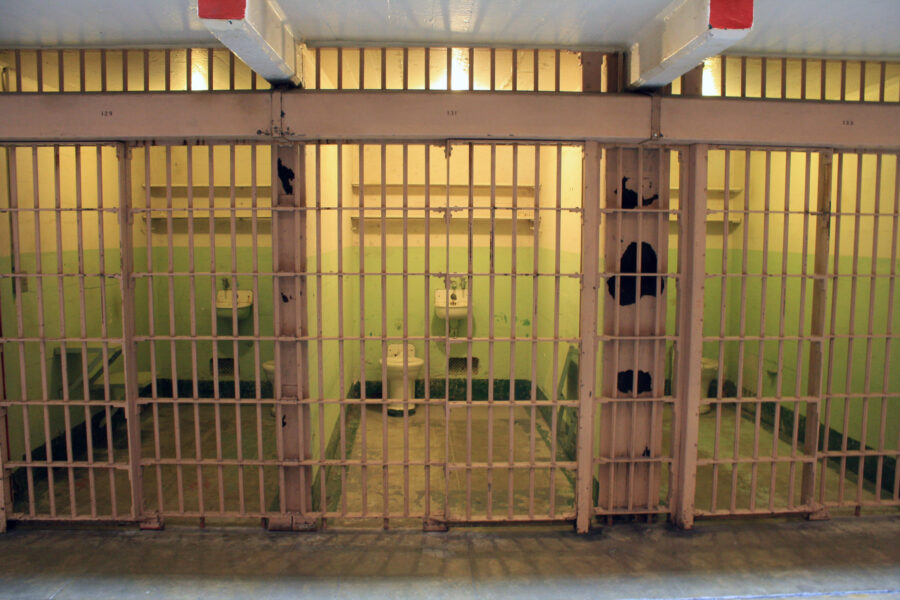Why aren’t you a criminal?
Let’s think about it.
Imagine if the government said that on the first day of next month, for a period of exactly 24 hours, there would be suspension of laws. Anyone could do anything to anybody . . . you could take whatever you wanted from anyone . . . and you could do it as long as you did it within those 24 hours . . . any never be charged with any crime.
What would you do?
Would you take that shiny new sports car you always wanted from the new car dealership?
Would you assault your neighbor next door for all the times he’s annoyed you cutting his grass at 7 a.m.?
Would you rob a bank?
Would you kill someone who you hated?
You wouldn’t do any of those? Why not?
You wouldn’t be charged with a crime. So you wouldn’t be a criminal according to the government. You could never spend one day in jail. But would you still be a criminal in your own mind?

THE THREE THINGS ALL CRIMINALS NEED TO COMMIT CRIME
For you to understand why a criminal does what they do, and for you to avoid being a victim, you need to know about the three things all criminals MUST do to commit a crime. It doesn’t matter what type of crime they want to do – sexual assault, robbery, murder, kidnapping, burglary – ALL criminals MUST do these three steps in order to commit a crime:
FIRST, they must know that what they want to do is morally wrong, but they are choosing to do it anyway,
SECOND, they know that by doing what they want, if caught by the police, they can be arrested, incarcerated and possibly executed, depending on the crime, but they are choosing to do it anyway,
THIRD, they need a victim.
That’s where you come in.
You can’t stop a criminal from the first two steps. But you can stop them from the third step if they have you or a loved one in their sights.
The FIRST step, the moral judgement of committing the crime, is what stops you from taking that car or assaulting your grass-cutting neighbor on the government approved crime-free day. Even through it is technically not a crime on that day, and you can never be charged with a crime for taking the car or bashing your neighbor, you don’t do it. Why? Maybe your parents can be thanked for bringing you up morally right. Maybe your teachers taught you right from wrong. Or maybe that’s just the way “life” molded you. But either way, you can’t morally justify taking the car. Or killing someone you hate. Or assaulting your neighbor. Even though the government says you can in that 24 hour period. So, you don’t do it.
So, if a criminal-to-be does not care about what they are going to do is morally wrong, they are ready to move to the next step.

The SECOND step, the fear of being arrested, incarcerated and/or executed if caught by the police, is what stops most people from committing crimes. Long before there were organized police departments, law and order was meted out by neighbors and relatives of the victim in the form of physical punishment and public spectacles such as the pillory, whipping posts, stocks, and in the case of death, hangings. So, there have always been deterrents to people so they do not commit crime. However, to a criminal-to-be, if they feel they will not get caught, or the likelihood of getting caught is small, and they don’t care if what they are about to do is morally wrong, they are now ready to move on to . . .

The THIRD step . . . getting a victim.
Will it be you?
A criminal can overcome steps one and two, but without step number three – a victim – they can’t succeed. It’s a simple fact. Just like McDonalds needs hamburgers for their Big Macs, criminals need a steady supply of victims.
Each crime, just like each criminal and each victim, has things in common as well as being different. Just like a brain surgeon needs his or her first brain to operate on (hopefully not yours), a criminal-to-be has to, at some time, commit their very first crime. If they are successful, they will repeat what works for them, and so on for each crime. Criminals like things easy.
If they are unsuccessful in their first attempt, they may get caught by the police. Should they be convicted, and sentenced to jail, then that is where they will learn from more experienced criminals on how to avoid the mistakes they made. Yes, it’s your tax dollars at work! Jail is like Harvard – only the dorms aren’t as nice.

If they are unsuccessful but have not been caught, they will use the experience as a “teachable moment” and refine their craft so it works better the next time.
SCENARIO: A male criminal-to-be has his eye on a female cashier at the local 24 hour convenience store. He decides he is going to kidnap her when she gets off her evening shift next week. He waits in the darkness, grabs her, and ties her hands up with rubber bands. She yanks them off, escapes, and runs away. He has learned a valuable lesson. Next time – no rubber bands.
If he does try it again, and uses rope to bind the victim’s hands, and he is successful in the kidnapping, he is not going to experiment. He will use rope over and over again as long as it works. That is part of what is known as his modus operandi, or “method of operation.” Criminals use what works for them. They are not scientists. They do not like to experiment. They like to keep it simple.
So, let’s apply this to you not being a victim, but in this situation it will be your car, not you personally. If you park your car at night, and leave the doors unlocked and/or the keys in it, you have given the criminal Step Three – a victim – and in this case it’s your car.
But, if you have locked your car, and/or operated the alarm on it, that criminal may try to steal your car, become frustrated that he can’t, and move on to another car. By locking your car, and operating the alarm, you have taken removed yourself from being Step Three.
That same principle – not allowing the criminal to choose you as a victim – is the main focus of this post. Although we cannot change a criminal’s moral judgement, or their fear of arrest and incarceration, you can avoid being selected as a victim. Incarceration and arrest are the only methods that usually make a criminal adjust their morals or fear of being caught. Also, incarceration guarantees the safety of the public, because a criminal can’t commit crimes against the public while incarcerated.

If you remember the three steps all criminals need to commit crime, and pay close attention to what I mentioned was the third step, the criminal will hopefully pass you by and move on to an unsuspecting victim.
Maybe that early-bird neighbor of yours while he’s cutting the grass . . .




